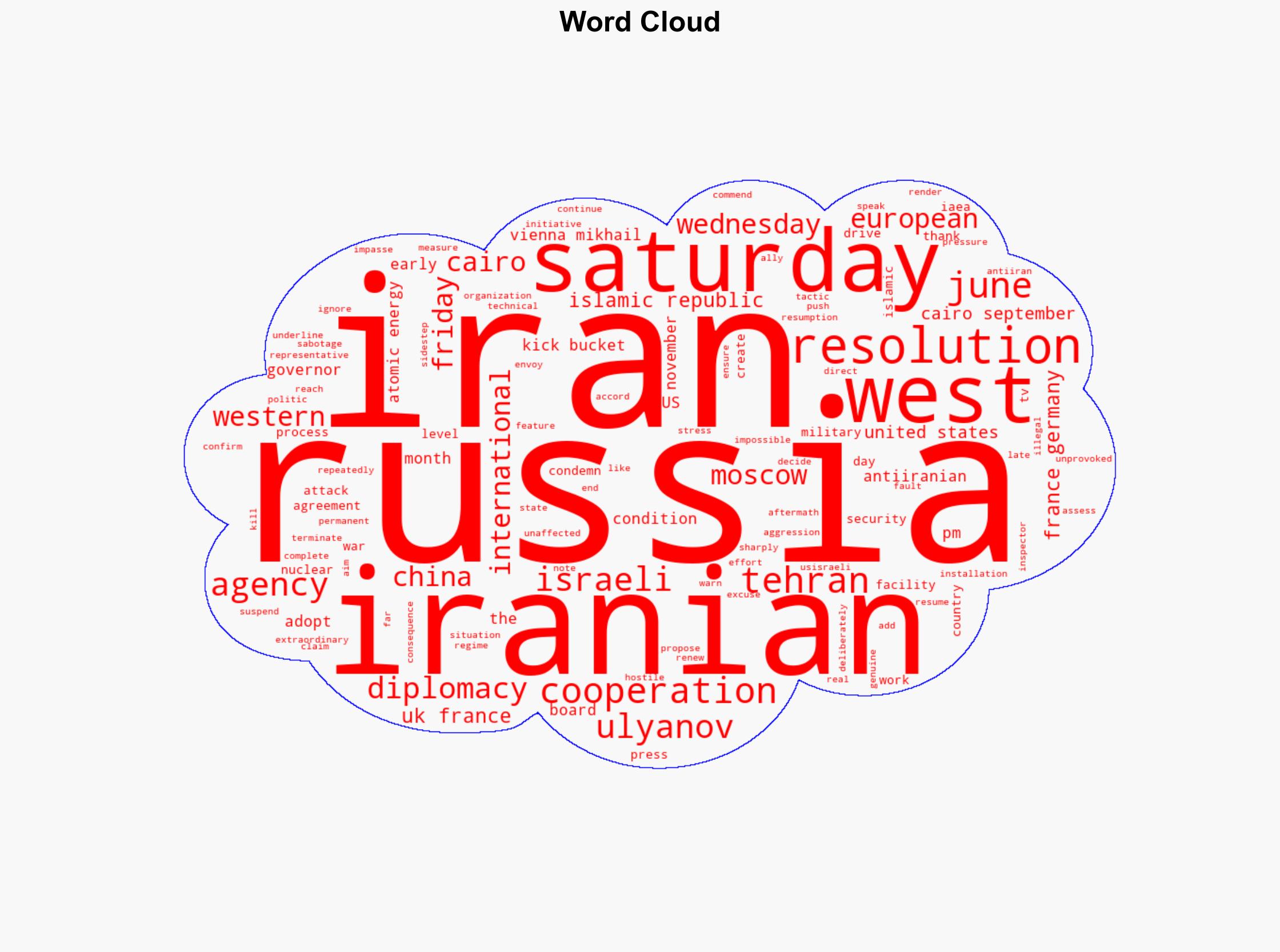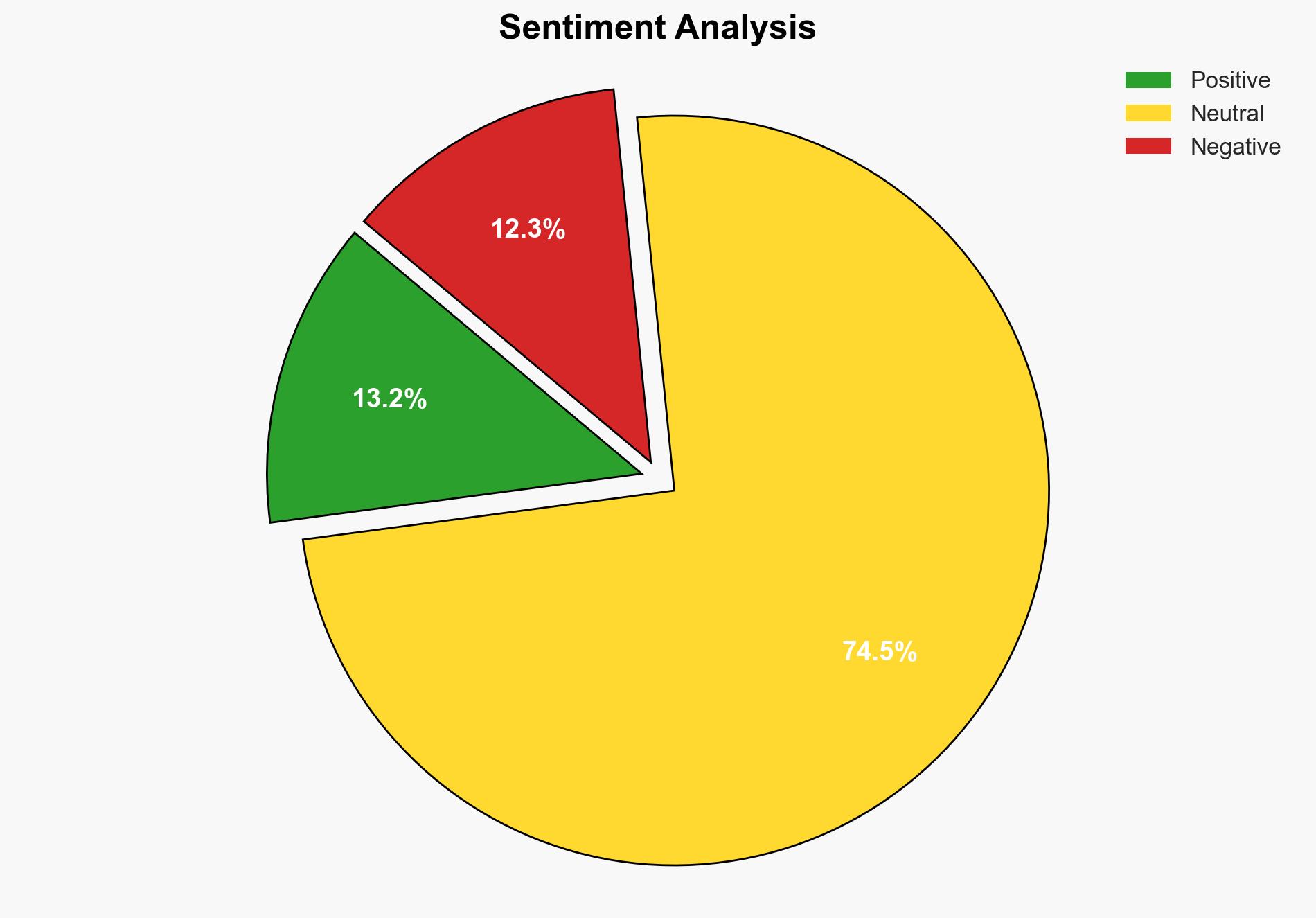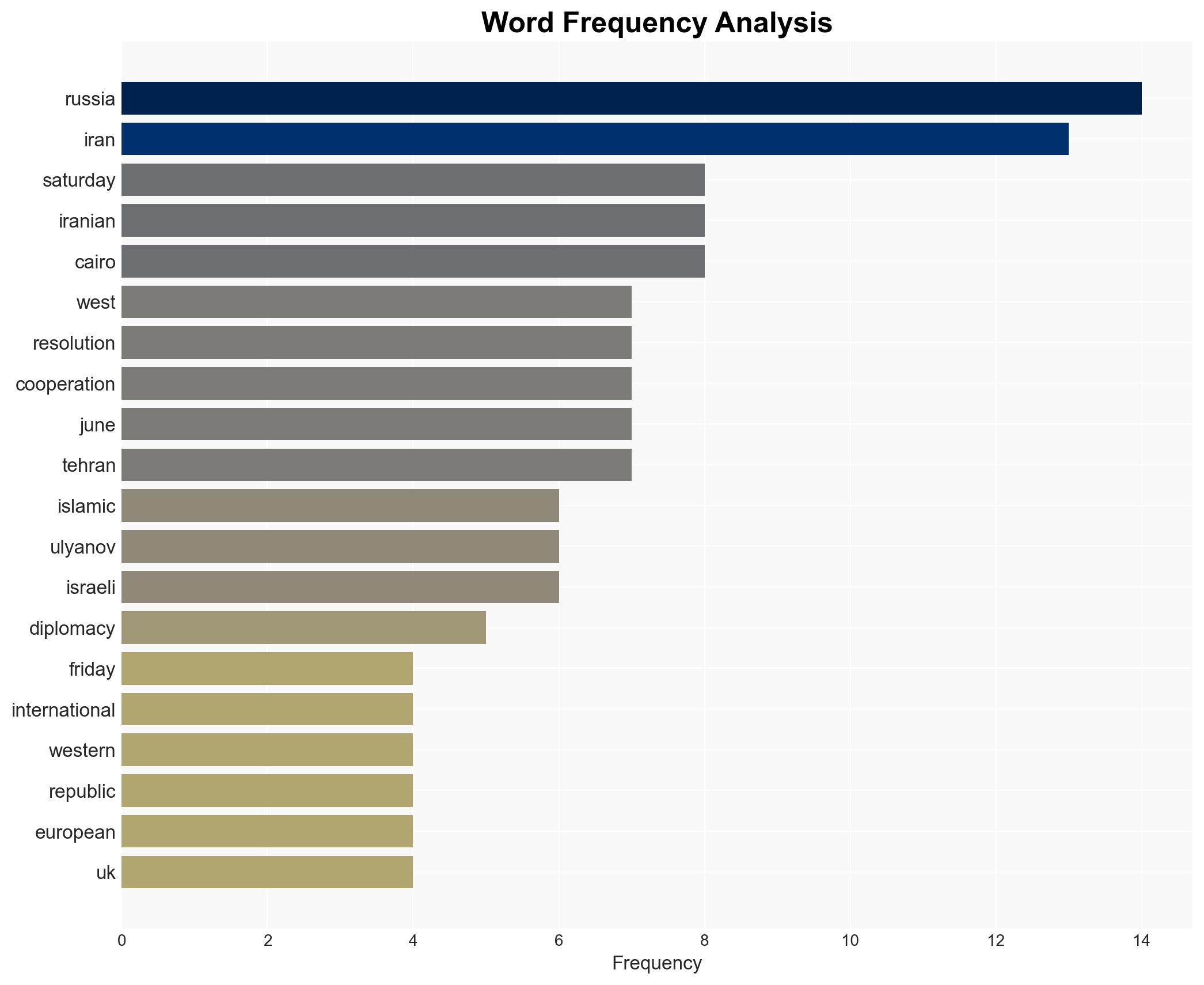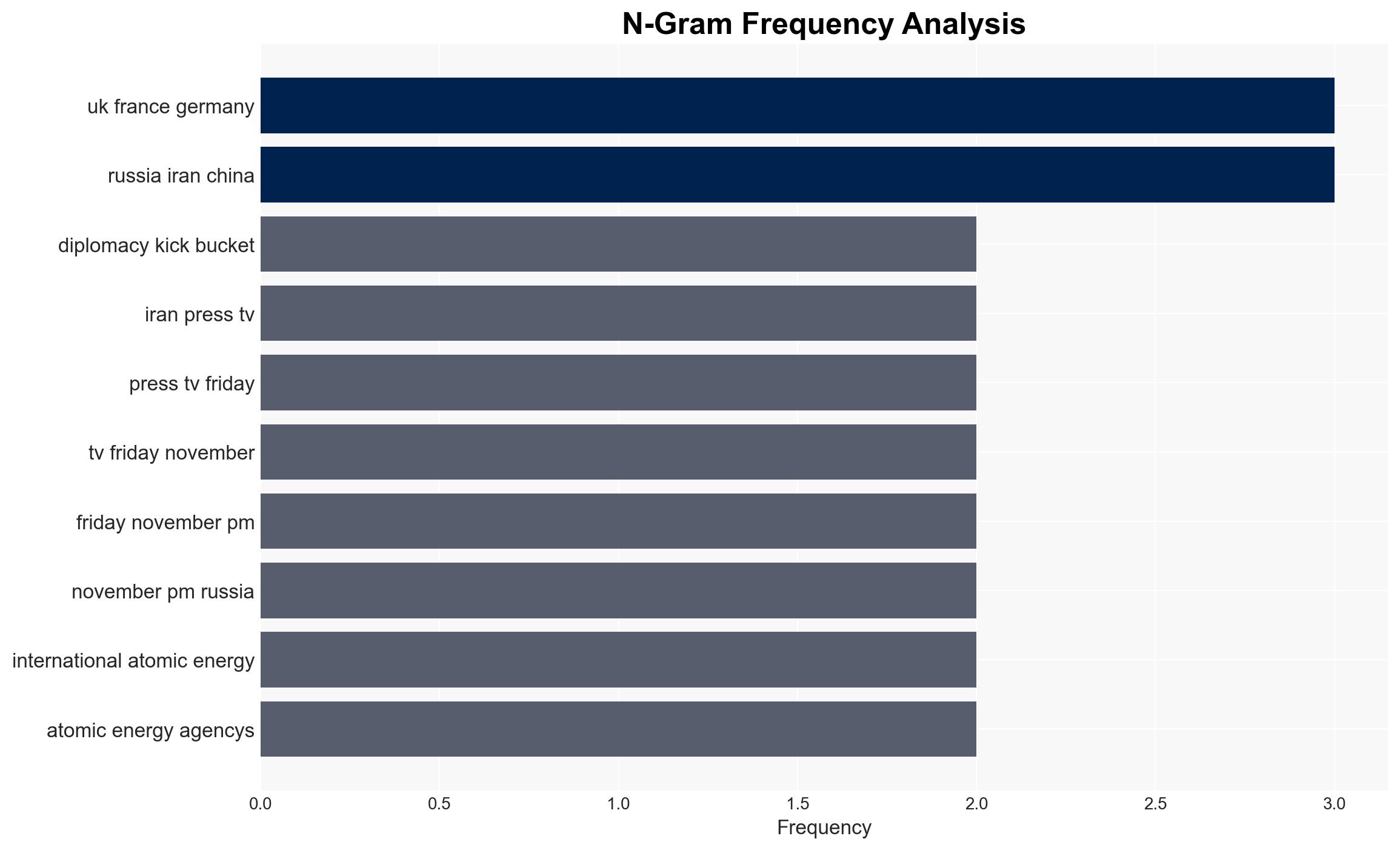Russia Diplomacy has already ‘kicked the bucket’ thanks to West’s anti-Iranian measures
Published on: 2025-11-22
AI-powered OSINT brief from verified open sources. Automated NLP signal extraction with human verification. See our Methodology and Why WorldWideWatchers.
Intelligence Report:
1. BLUF (Bottom Line Up Front)
Russia’s diplomatic stance on the recent IAEA resolution against Iran is likely a strategic move to bolster its alliances with Iran and China against Western influence. This is supported by Russia’s vocal condemnation of the resolution and its emphasis on Western aggression. Confidence Level: Moderate. Recommended Action: Monitor Russia-Iran-China diplomatic engagements and prepare for potential shifts in regional alliances.
2. Competing Hypotheses
Hypothesis 1: Russia’s condemnation of the IAEA resolution is primarily a diplomatic maneuver to strengthen its geopolitical alliances with Iran and China, countering Western influence in the region.
Hypothesis 2: Russia’s response is a genuine concern over the escalation of tensions and potential conflict in the region, which could destabilize its interests.
Hypothesis 1 is more likely given Russia’s historical pattern of leveraging diplomatic conflicts to consolidate alliances and counterbalance Western power. Hypothesis 2 is less supported due to the lack of direct evidence indicating Russia’s concern over regional instability outweighing its strategic interests.
3. Key Assumptions and Red Flags
Assumptions: Russia views the strengthening of ties with Iran and China as beneficial to its strategic interests. The West’s actions are perceived as aggressive by Russia.
Red Flags: The potential for Russia to exaggerate Western aggression to justify its actions. The possibility of misinformation from state-controlled media sources like Iran Press TV.
4. Implications and Strategic Risks
The resolution could lead to increased geopolitical tensions, with Russia, Iran, and China potentially forming a more cohesive bloc against Western nations. This could escalate into economic sanctions, cyber confrontations, or informational warfare. The risk of military conflict, while lower, cannot be entirely discounted.
5. Recommendations and Outlook
- Enhance intelligence-gathering efforts on Russia-Iran-China diplomatic activities.
- Engage in diplomatic dialogues to de-escalate tensions and explore potential compromises.
- Best-case scenario: Diplomatic engagements lead to a de-escalation of tensions and a resumption of cooperation with the IAEA.
- Worst-case scenario: Escalation into a broader geopolitical conflict involving economic sanctions and cyber warfare.
- Most-likely scenario: Continued diplomatic posturing with limited direct conflict but increased regional polarization.
6. Key Individuals and Entities
Mikhail Ulyanov – Russia’s Permanent Representative to International Organizations in Vienna.
7. Thematic Tags
Structured Analytic Techniques Applied
- Cognitive Bias Stress Test: Expose and correct potential biases in assessments through red-teaming and structured challenge.
- Bayesian Scenario Modeling: Use probabilistic forecasting for conflict trajectories or escalation likelihood.
- Network Influence Mapping: Map relationships between state and non-state actors for impact estimation.
Explore more:
National Security Threats Briefs ·
Daily Summary ·
Support us





